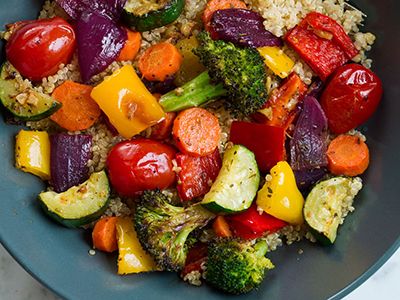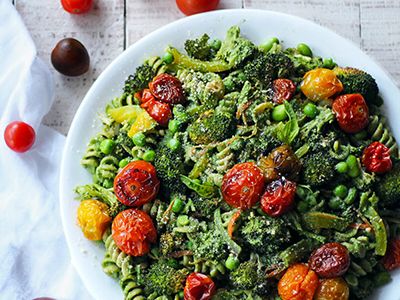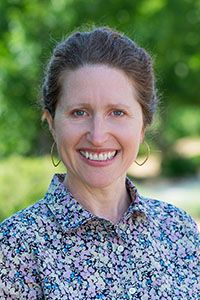Dr. Su's Blog
The Importance of a Balanced Diet: A Guide for Cancer Patients
Over the past few years I’ve had many conversations with newly diagnosed cancer patients. They’ve been online. They’ve gone to all the most popular cancer websites and blogs. At this point one of three things happens: they become a raw-food-only vegan, they go 180 degrees the other direction and start the carbohydrate-free, fat-rich ketogenic diet, or they are so confused by the conflicting messaging that all food becomes suspect and they start losing weight. I would like to heartily advocate for a return to truly wholistic eating where we eat a variety of foods from a place of enjoyment.
Let’s look at some guiding principles that help us know what the best diet is for cancer patients:

- First, remember that diet is just one aspect of tending your health. Let’s take some of the pressure off of diet for curing all our ills. A balanced diet sits at the table with good sleep, healthy physical movement, moderated stress, sunshine, laughter, love, and, of course, supportive herbs!
- Next, my number one tenet is that vegetables and fruits should occupy most of the plate at EVERY meal. The amazing array of phytochemicals available in deeply colored plant foods is such a rich pharmacopeia. I frequently cite a study that relates to women who carry one of the BRCA mutations, which lead to a sharply heightened risk of developing breast or ovarian cancer. Research has shown that BRCA+ women who consume up to 27 different fruits and veggies per week saw their risk decrease by a whopping 73%!1 There is no pharmacological substance that even comes close. I always hope that this study encourages people to open up their diet and enjoy a diverse array of foods. Note that it was not about eating the most broccoli per se, but about enjoying a rich variety. It certainly takes the stress out of wondering what foods are ok to eat if you fill your meals with beautiful vegetables.

- This dovetails nicely with the oft-mentioned theory that to beat cancer, or just be as healthy as possible, a diet composed of primarily raw foods is optimal. This is where dietary individualization becomes much more important. In my experience, if someone is thin, has difficulty building muscle, has poor energy, or low digestive vitality with issues such as bloating, gas, or loose bowels, then a cold, raw diet is not indicated. The warming and easy-to-digest nature of cooked foods will allow greater nourishment and nutrient extraction. By contrast, if you have a more hot, fiery system, with heartburn, constipation, and high cholesterol, then a cooler, raw diet may be of benefit. Remember the internet does not know what type of person you are.
Also, many nutrients are not as bioavailable in a raw state. When we consider the Brassica family for example, many of the strongest cancer-fighting substances such as isothiocynates are not available until lightly cooked. Likewise, some other substances that slow down thyroid function, are too available with raw broccoli and kale.
This brings us back to the core ideals of variety and balance as the foundation of your diet. Some cooked, some raw, as many colors as you can.
- A lot of my patients are also trying intermittent fasting. Intermittent fasting is a term usually used for allowing our bodies to get into a fasting state by limiting the number of hours during the day when we eat. Many sources say that fasting for 14 hours per day, or even up to 16, is optimal, thus limiting our food consumption to an eight to ten-hour window. As the New England Journal of Medicine states, “intermittent fasting elicits evolutionarily conserved adaptive cellular responses… that improve glucose regulation, increases stress resistance, and suppress inflammation.”2 All good things!
However, like the raw food diet, I believe the intermittent fasting model is not appropriate for everybody. It’s true that many Americans eat too much, too often, and the concept of allowing our digestion to rest, and cells to empty themselves of fat, would be beneficial for many people. For folks with higher blood sugars, who carry weight around their middle, and who are truly not hungry in the morning, then intermittent fasting can be a great tool for enhancing insulin sensitivity. (for more information, read my blog How to Maintain Healthy Blood Sugar Levels.
I find that for many of my patients though, intermittent fasting means living on caffeine and adrenaline in the mornings instead of nourishing themselves. So, if you have healthy glucose management, taking yourself out of the fasting state and allowing food-based cellular-energy processes to occur is usually to one’s cognitive and emotional advantage - meaning, people think better and make wiser choices when they are not in a hungry state.
As I stated above, my main goal is for people to eat very broadly from the vegetable kingdom. Once that habit is in place (and it does take work!), then there is a lot of leeway for tailoring your diet to what suits you best. I really do not want to demonize any food category (well, except cane sugar). Do carbohydrates feel satiating? Please add some whole grains to your plate. Does meat satisfy something for you that veggies never could? Again, have a side-portion of (organic, grass-finished) meat to go with your greens.
What are our dietary goals?
Ultimately, we are trying to construct a diet that:

- digests well
- meets your specific metabolic needs
- is super gratifying
We want as nutritionally dense a diet as possible and that does not always align with the strict raw/no carb/ time-crunched guidelines that I so often see promoted. I believe that healthy eating is truly about adding more nutrients to our meals than it is about what we avoid.
What are some simple ways to enhance our nutrition?
- Think outside the basil plant and add a wide variety of pestos to your diet: parsley, cilantro, dandelion greens, even spring-time nettles.
- Be generous with fresh herbs. I especially think parsley is wrongfully relegated to the sidelines. Other great herbs include rosemary, mint, thyme, sage, and oregano.
- Rich fats add flavor. Of course, use olive oil… but drizzling walnut oil or hazelnut oil, or a slab of grass-fed butter makes everything taste better and enhances fat-soluble nutrient absorption.
- Berries, berries, berries. Have I made my point?
- Eat bitter greens to enhance our digestion and support the liver
- Include probiotic foods such as sauerkraut, miso, kefir, yogurt, beet kvass, etc.
- And don’t forget laughter… the best spice of all!
So, please enjoy your food! Eating should be a pleasure and feel like a gift.
References
- Ghadirian, P., Narod, E., Fafard, M., et al. “Breast Cancer in Relation to the Joint Effect of BRCA mutations and Diet Diversity,” Breast Cancer Research and Treatment (2009).
- Rafael de Cabo, Ph.D., and Mark P. Mattson, Ph.D. Effects of Intermittent Fasting on Health, Aging, and Disease. N Engl J Med 2019;381:2541-51.
Join the Mederi Center community by signing up for our email list! We send several emails a month with product promotions for patients, practical tips for healthy living, blogs written by our practitioners, information about events, and other news. You can unsubscribe at any time.

Meet Dr. Su!
Dr. Susan Saccomanno, ND, LAc is a contributing writer to the Mederi Blog and a practitioner at the Mederi Center Clinic in Ashland, Oregon. She has over a decade of experience as a family physician with a specialty in holistic cancer care and chronic illness. Dr. Su has been practicing at the Mederi Center since 2014, where she blends the best of naturopathic and Chinese traditions.
Dr. Su became a doctor out of her passion for helping people achieve vibrant health. She received her Naturopathic Doctorate and Master of Oriental Medicine degrees from National College of Natural Medicine, and extended her studies in integrative cancer care in the Eclectic Triphasic Medical System (ETMS), founded and taught by Donnie Yance.


